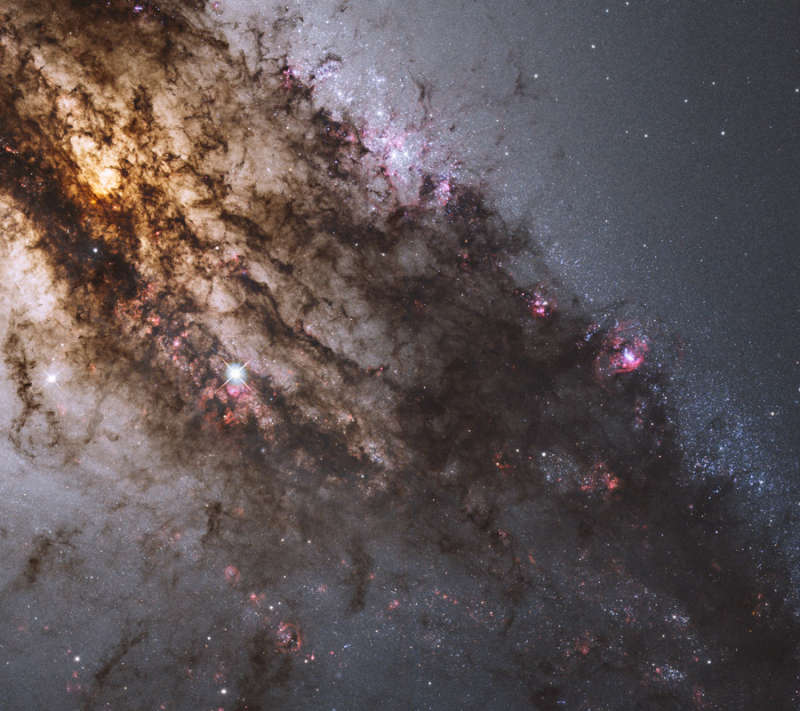
|
Credit & Copyright: NASA,
ESA, and the
Hubble Heritage
(STScI/AURA) -
ESA/Hubble Collaboration;
Acknowledgement:
R. O'Connell
(U. Virginia)
Explanation:
A fantastic jumble of young blue star clusters,
gigantic glowing gas clouds, and imposing dark
dust lanes
surrounds the central region of the active galaxy Centaurus A.
This image from the Hubble Space Telescope has been processed to present a
natural color picture
of this cosmic maelstrom.
Infrared images from the Hubble have also shown that hidden
at the center
of this activity are what seem to be disks of matter spiraling into
a black hole
with a billion times the mass of the Sun.
Centaurus A itself is apparently the result of a
collision of two galaxies
and the left over debris is steadily being consumed by the
black hole.
Astronomers believe that such
black hole central engines generate the
radio, X-ray, and gamma-ray energy radiated by Centaurus A
and other active galaxies.
But for an active galaxy Centaurus A is close,
a mere 10 million
light-years away, and is a relatively convenient laboratory for
exploring these powerful sources of energy.
APOD Graduate Assistantship:
Research the universe - support a leading astronomy web site
|
January February March April May June July August September October November December |
| ||||||||||||||||||||||||||||||||||||||||||||||||
NASA Web Site Statements, Warnings, and Disclaimers
NASA Official: Jay Norris. Specific rights apply.
A service of: LHEA at NASA / GSFC
& Michigan Tech. U.
Based on Astronomy Picture
Of the Day
Publications with keywords: Centaurus A - active galaxy - black hole
Publications with words: Centaurus A - active galaxy - black hole
See also:
- NGC 1275 in the Perseus Cluster
- APOD: 2025 November 2 Á A Horseshoe Einstein Ring from Hubble
- APOD: 2025 December 3 Á Visualization: Near a Black Hole and Disk
- APOD: 2025 December 2 Á M77: Spiral Galaxy with an Active Center
- APOD: 2025 September 24 Á GW250114: Rotating Black Holes Collide
- APOD: 2025 May 9 Á IXPE Explores a Black Hole Jet
- APOD: 2025 May 6 Á The Doubly Warped World of Binary Black Holes
